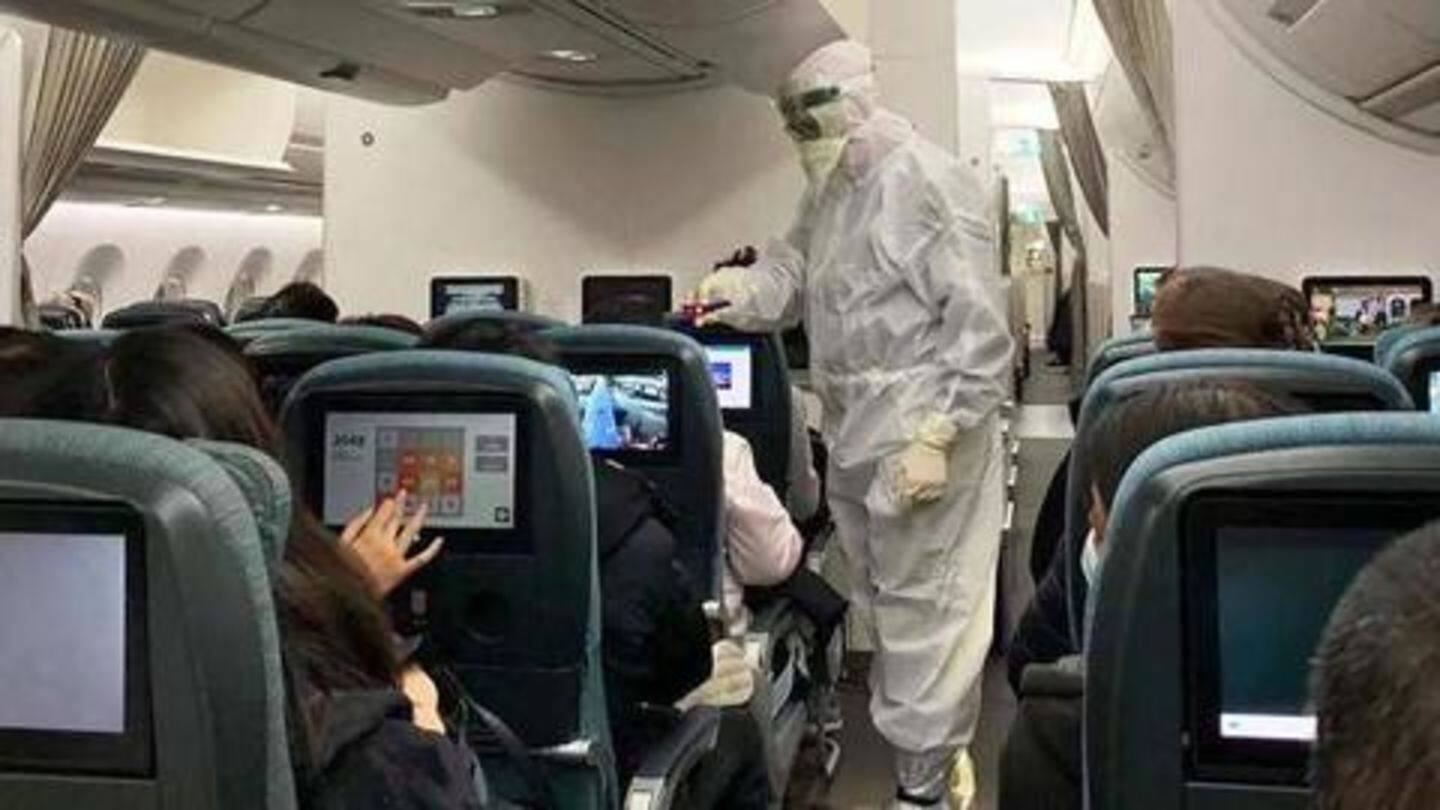
Are air-conditioned trains, cabs, flights safe? Here's what experts say
What's the story
Experts have repeatedly raised questions about the use of air-conditioning in view of the coronavirus outbreak.
The concerns take centerstage as India has been resuming flights, trains, and cabs.
Last month, the Indian Railways allowed the operation of fully air-conditioned trains, dismissing experts' concerns saying centralized ACs are acceptable with 12 Air Changes per Hour (ACH).
Here's what the experts have to say now.
Trains
How safe is it to travel in trains?
Speaking to HuffPost India, CEO of indoor air quality solutions provider BreatheEasy, Barun Aggarwal, explained that ACH is a measure used to calculate the number of times air gets "changed"—outside air replaces indoor air—in one hour.
Aggarwal said this is often confused with the number of times the same indoor air gets recirculated, raising doubts about the Railways' 12 ACH claim.
Quote
'Unlikely that trains are truly changing air'
Aggarwal said, "If there's a virus particle in the air, it could likely infect other people unless they are truly 'changing' the air with outdoor (or fresh) air 12 times every hour."
He added, "It's unlikely they will do this as the CO2 levels measured by us in various AC trains have been very high—which means that the air is recirculated and not changed."
Solution
Here are some suggestions for trains
Aggarwal suggested five steps to ensure safe train travel: ventilation with "fresh air"; filtration with certified HEPA filters; maintaining 40-79% relative humidity; maintaining 24-30°C temperature; and minimizing a draft by running the fan at the lowest speed.
Research Analyst and Founder of AMFAH India, Mansoor Ali, further suggested installing suitable UV systems in train coaches to treat the air.
Cabs
How safe is it to travel in cabs?
Aggarwal told HuffPo that any AC system that "recirculates air within a cabin" is potentially harmful.
He suggested keeping windows rolled down by 1-2 inches in cabs when the AC is turned on or getting a high-quality air purifier if possible.
Ali suggested keeping the AC turned off and the windows open. The AC can be turned on in personal vehicles, Ali said.
Flights
How safe is it to travel in flights?
Aggarwal said aircraft usually have best-in-class air filtration systems with certified HEPA filters.
He said they are also designed to pull in "fresh air" for ventilation, which helps keep Carbon Dioxide (CO2) levels between 1,000-1,600 ppm.
Further, some aircraft have top-bottom airflow instead of front-back. This ensures that the air exhaled by a person is not inhaled by another behind them.